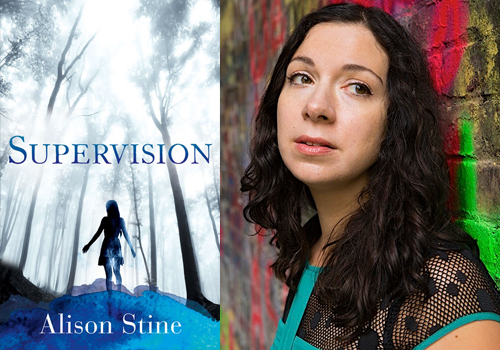I Published My NaNo-Novel: 4 Things I Learned from Teaching Revision

During January of our “Now What?” Months, we’re talking to Wrimos who’ve published their NaNoWriMo projects and asking them how they got there. Today, Alison Stine, author of
Supervision
, shares the novel-revision lessons she learned as a teacher of English Composition:
For years I taught English Composition to first-year college students. And while grading 90 or more three-paragraph essays every other week is probably not the best day job for a writer in need of time and creative reserves, it did teach me a lot about revision. The best way to learn something, really learn it, is to teach it. And there’s no greater crash course in revision than staring down a pack of hungry teenagers who want specific ways to improve their writing.
My first published novel, Supervision, was written one hectic November. I wrote fast and I wrote hard. I wrote messy. Very very messy. And what I was left with at the end of the month was a single-spaced, frequently-misspelled, sometimes confusing ball of words.
What comes next is still my favorite part.
I always encouraged free writing in my students, as I practice it to generate my own first drafts. But while “first thought, best thought” works for an initial draft, revision requires much more consideration. This is the thinking part. You need to slow down and see. I told my students, as I recommend to anyone working on revision: print out a hard copy to revise.
It’s easier to miss mistakes, and opportunities for change, on a screen. Reading a hard copy is slower. Printing out the pages allows you to live with them. I took my printed manuscript and a red pen with me everywhere. A lot of work was done on the subway, over lunch, waiting at bars for my friends to arrive. Revision happened then, and it happened later when I typed the handwritten changes into my document, usually adding or subtracting even more.
I also recommended that my college students, after writing their first drafts, make a reverse outline. This goes for your novel, too. Maybe you made an outline before you started to write, maybe you didn’t. But make one now. Go back through your novel and make a list of all the major plot points. Does every chapter have a point? Do they all move the plot along? Are the stories of any characters lost in the shuffle? You’ve got the bulk of the story down; now figure out what the whole picture means and how to connect everything. Revision is the time to structure purposefully.
I used to give my students advice that one of my own first-year English professors had given me: You often come up with your best ideas at the end. Students may reach the conclusion of their paper and discover their actual thesis. You may read your own novel draft for years before discovering its true heart (I did). It takes living with an idea or story for some time to understand it, even the stories we tell ourselves. Make sure you give yourself that time.
A last lesson you can take from the English Composition classroom? Find peers. You need other eyes to help you see your own work, outside readers to help you find your way through it. For Supervision, it was my mom and sister, and my friend Ellee. Make your own workshop, and share your writing with people you trust before sharing it with the world.
Alison Stine is the author of
Supervision
, a novel written during National Novel Writing Month and published by HarperVoyager UK in 2015. Also the author of two books of poems and a chapbook, she lives in the foothills of Appalachia.
Author photo above by Kari Gunter-Seymour.
Chris Baty's Blog
- Chris Baty's profile
- 63 followers



